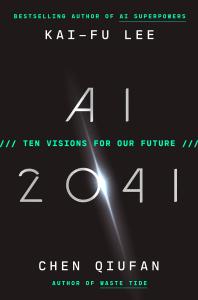Within the last thirty years, internet, social media, and mobile technologies have transformed the ways we interact with information, each other, and the world. In addition to these nearly ubiquitous technologies, we are witnessing the rapid advance of new digital technologies such as artificial intelligence and machine learning, augmented and mixed reality, and the Internet of Things.
All of these new and emerging technologies raise fundamental and new questions about what we can know, what we may hope for, what we should do, and what it means to be human.
New technologies have always raised such questions, of course. Historically, it has taken generations to appreciate the gains and losses that came with major technological shifts. Indeed, the impacts of previous shifts—from oral to written communication, from manuscript to print books, from manual to machine power, from human to digital computers—are still being assessed today. The technologies associated with such changes are not ethically neutral: A designer’s intentions shape a particular technology, and its efficacy is complicated by a user’s intentions. Human agency is involved throughout, as we shape technologies and they shape us.
But the speed and scale with which digital technologies have been created and adopted has left little time for critical reflection on them and how we may integrate them into our lives intentionally. Regardless of when we were born or the depth of our technological expertise, we are all of us digitally naïve.
We lack knowledge of how technologies are developed—especially of proprietary algorithms—so we use tools we do not and cannot fully understand. The strategies and filters we have relied on historically for balancing trust and skepticism are gone or broken, so we do not easily know what information is trustworthy and our access to knowledge is segregated. Ethical considerations are not often raised during the design or adoption of new technologies, so we are not integrating our values into the digital dimension of our lives.
Individually and collectively, we are still learning how to design and use new and emerging technologies well and wisely.
At best, we are learning new technological competencies. But the larger epistemological and ethical challenges facing us—about how we know what we know and about what we should do with what we know—require much more individual and cultural attention. As we become more digitally literate, we also must seek to become digitally wise.
Through this blog we will explore a dialogue between the “digital,” by which we primarily mean new information and communication technologies, and wisdom. While our digital technologies are new, presenting us with new challenges and opportunities, wisdom—including wisdom about technology—is ancient. In particular, we believe the resources of the Christian tradition can help us move from a position of digital naiveté toward one of digital wisdom.
Our technologies reveal and influence our values and hopes, and theological reflection can provide a broader framework for evaluating and enriching these. As Ron Cole-Turner has observed, technology is not “irrelevant to the theological meaning of humanity … transformations through technology are part of the larger cosmic drama of creation and redemption.” By bringing technology into conversation with theology, we aim to clarify the relationship between them so that our lives may be truly enhanced. This is an ambitious task, and each of us can only help clarify one modest part of it. We hope others will join us in this conversation.
Michael Paulus
Bruce Baker
Mike Langford













